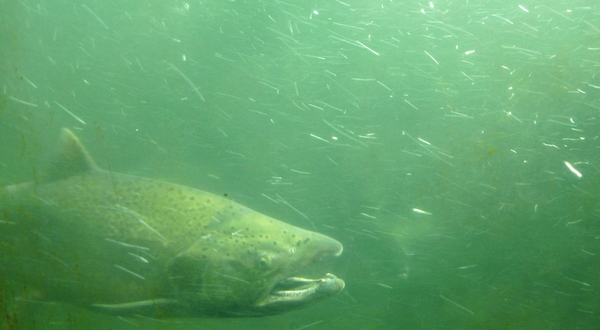
Washington Chinook Increase Program For SRKWs Again Upheld
Wednesday’s federal court rulings were full of woe for Wild Fish Conservancy.
Not only did the US Ninth Circuit Court of Appeals halt scrapping this summer’s Alaska Chinook commercial troll fishery, which would have been a signature win for the highly litigious organization, but a three-judge panel also denied yet another WFC bid to try and derail increased hatchery Chinook production for Washington’s imperiled resident orcas.

The two losses for WFC stem from the same court case – a 2020 suit against the National Marine Fisheries Service’s 2019 Southeast Alaska biological opinion authorizing king salmon fisheries there and which is supported by what’s known as the “prey increase program” that now has Washington hatcheries pumping out millions more young Chinook to help feed starving southern resident killer whales, with shirttail benefits for fishermen of all stripes.
It was an interesting decision because the Ninth “typically strongly favors protection of ESA-listed species,” noted one observer.
In staying a lower federal court’s ruling that halted the troll fishery, the appeals court judges write that NMFS and the state of Alaska likely would be able to demonstrate “that the certain and substantial impacts of the [U.S. District Court for Western Washington’s] vacatur on the Alaska salmon fishing industry outweigh the speculative environmental threats.”
And in the second to last paragraph of their five-page ruling, Senior Circuit Judge Barry G. Silverman and Circuit Judges Ryan D. Nelson and Patrick J. Bumatay also denied WFC’s late May motion for injunctive relief against the prey increase program.
Wild Fish Conservancy, the judges wrote, “has not demonstrated that the district court likely abused its discretion in declining to vacate the prey increase program, particularly in light of the district court’s findings that the disruptive consequences of vacatur would ultimately put the whales at further risk of extinction and outweigh the seriousness of the [NMFS’s] errors.”
That verbiage stems from US Magistrate Judge Michelle L. Peterson’s recommended ruling last December.
“A disruption to the prey increase program, or its funding, thus appears primed to result in gaps in prey abundance that would lead to increased risk to the health of the SRKW and threaten any future operation of the program,” she wrote.
That was adopted in early May by presiding US District Court Judge Richard A. Jones when he also remanded the biop back to NMFS, which led the feds and Alaska to appeal to the 9th Circuit Court.
You probably won’t see many news stories about the prey increase aspect of the case, but WFC and other groups have been trying everything they can to scuttle increased hatchery salmon production for the orcas as habitat work slowly comes on line for wild salmon populations to eventually take advantage of in the decades ahead.
To be abundantly clear, SRKWs are in bad shape based on a strict diet requirement that doesn’t go well with plopping a civilization of tens of millions of people on top of their freshwater and saltwater habitats and making – in the grand scheme – relatively token gestures to spruce it up.
In statements to media, WFC said it was “disheartened” by the appeals court’s ruling and termed it “unfortunate that the Ninth Circuit determined the short-term economic interests of a few should be prioritized over the continued existence of these species and the current and future generations of First Nations, Tribal Nations, and communities throughout the Pacific Northwest.”
Earlier this month, the Central Council of the Tlingit & Haida Indian Tribes of Alaska filed an amicus brief in support of NMFS’s and the state’s position on the troll fishery, and in May at least five Western Washington tribes filed to intervene in a WFC lawsuit against WDFW over hatchery production to increase orca prey.
News of the stay of the summer commercial troll fishery was celebrated in Alaska and in particular the Panhandle where many northern West Coast Chinook pasture.
“It’s great that the court recognized the irreparable harm this frivolous lawsuit would have on hardworking fishermen who have done nothing wrong,” stated Dan Sullivan, Alaska’s junior US Senator, in widely carried comments. “It is patently ridiculous to believe a small boat, hook and line troll salmon fishery hundreds of miles away from Puget Sound is having more of an impact on the sustainability of Puget Sound orca whales than toxins, pollution, noise and vessel traffic in their own backyard.”

